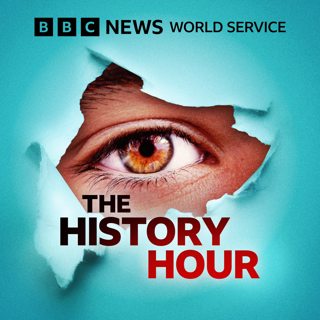
The Battle of the Airwaves in Latin America
Why the BBC started broadcasting to South and Central America, plus the My Lai Massacre, Brazil's careful transition to democracy, and Moscow's show trials in the 1930s.Photo: Members of the BBC's Brazil service rehearsing in a London studio in 1943. Credit: BBC.
17 Mars 201850min

Deaf Rights Protest
A landmark protest by deaf students in the US; the early fight for women's reproductive rights; the life and times of political thinker, Hannah Arendt; language and history in Azerbaijan, and Wonder Woman.Picture: Student protestors, courtesy of Gallaudet University in Washington DC
10 Mars 201850min

China's Barefoot Doctors
How China's barefoot doctor scheme revolutionised rural healthcare; plus M*A*S*H, the ground-breaking American TV show that taught a generation about war; the assassination of the Swedish prime minister Olof Palme; the German and Russian soldiers who fought on the Eastern Front in the First World War; and the Angel of the North, a huge steel sculpture that has become an icon for the north-east of England.Picture: Gordon Liu
3 Mars 201851min

The Boy in the Bubble
How a young boy lived with a rare genetic disorder; plus "Ghana Must Go" - when 1 million Africans were expelled from Nigeria, battling the last major smallpox epidemic in India, reporting the Jimmy Swaggart scandal and the story behind the acclaimed novel "Infinite Jest" (Photo: David Vetter and his mother Carol-Ann Demaret Credit: Carol-Ann Demaret)
24 Feb 201849min

Women's Rights In Iran
We hear from Mahnaz Afkhami, Iran's first ever minister for Women's Affairs, appointed in 1975. Plus, the so-called "headscarf revolutionaries" who fought for improvements in Britain's notoriously dangerous fishing industry, a member of the Viet Cong recalls one of the biggest battles of the Vietnam War, finding the lost notebooks of Leonardo Da Vinci, and the 1970s lesbian separatist movement in America.Photo: Mahnaz Afkhami at the UN in 1975. (Mahnaz Afkhami)
17 Feb 201850min

The Munich Air Disaster
The plane crash that killed eight of Manchester United's top players, the courage of the British Suffragettes, uncovering South Africa's nuclear secrets, plus tracking down Nazis in South America and the attack on a South Korean airliner ahead of the Seoul Olympics.(Photo: Plane wreckage at Munich airport - AFP/Getty Images)
10 Feb 201850min

The Tet Offensive
In January 1968, North Vietnamese troops and Viet Cong guerrillas launched a huge surprise attack on towns, cities and military bases across South Vietnam. The events of the Tet offensive had a profound impact on American public opinion and marked a turning point in the war. Plus the roots of the Rohingya crisis, the birth of gospel music, Ireland's Bloody Sunday, and the end of corporal punishment in Britain.Photo: Julian Pettifer reporting under fire near the Presidential Palace in Saigon, 31st January 1968 (BBC)
3 Feb 201850min

The Capture of the USS Pueblo
When North Korea and the US came close to war in 1968; plus Salvador Dali, re-creating Francis Bacon's studio, the first veggie burger and the origins of Lego Photo: Members of the USS Pueblo's crew being taken into custody. Credit: Korean Central News Agency/Korea News Service
27 Jan 201850min






















